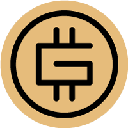-
 Bitcoin
Bitcoin $85,238.5661
0.64% -
 Ethereum
Ethereum $1,615.2847
1.32% -
 Tether USDt
Tether USDt $0.9999
0.04% -
 XRP
XRP $2.0883
0.74% -
 BNB
BNB $592.2562
-0.01% -
 Solana
Solana $141.5242
2.81% -
 USDC
USDC $0.9999
0.04% -
 Dogecoin
Dogecoin $0.1588
0.26% -
 TRON
TRON $0.2443
1.27% -
 Cardano
Cardano $0.6332
0.12% -
 UNUS SED LEO
UNUS SED LEO $9.3153
0.94% -
 Chainlink
Chainlink $12.9555
2.04% -
 Avalanche
Avalanche $19.9945
3.87% -
 Stellar
Stellar $0.2467
1.89% -
 Toncoin
Toncoin $2.9852
-0.70% -
 Shiba Inu
Shiba Inu $0.0...01237
1.04% -
 Hedera
Hedera $0.1676
0.50% -
 Sui
Sui $2.1537
0.97% -
 Bitcoin Cash
Bitcoin Cash $339.7772
0.58% -
 Hyperliquid
Hyperliquid $18.3024
8.21% -
 Polkadot
Polkadot $3.8806
4.82% -
 Litecoin
Litecoin $76.3145
0.46% -
 Bitget Token
Bitget Token $4.5513
3.21% -
 Dai
Dai $0.9999
0.00% -
 Ethena USDe
Ethena USDe $0.9991
-0.01% -
 Pi
Pi $0.6521
0.51% -
 Monero
Monero $216.2105
0.38% -
 Uniswap
Uniswap $5.3418
2.30% -
 Pepe
Pepe $0.0...07526
2.95% -
 OKB
OKB $50.8437
0.86%
decentralized blockchain meaning
Blockchain's decentralized nature, using distributed ledgers and consensus mechanisms, ensures secure, transparent, and immutable transactions, empowering innovative dApps while eliminating single points of failure.
Mar 23, 2025 at 01:21 am
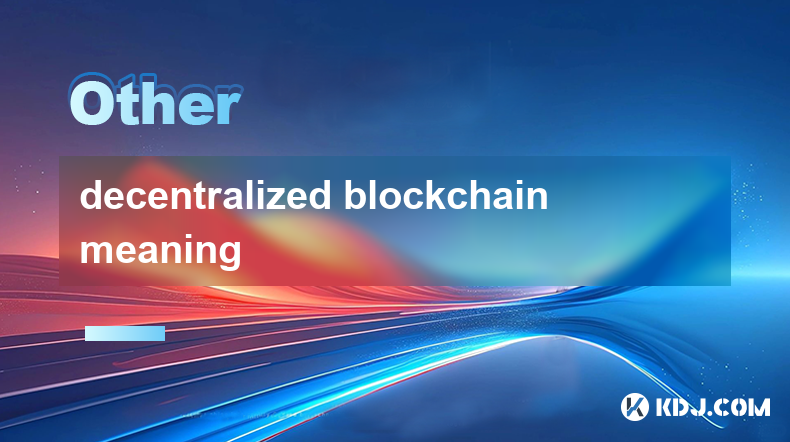
Key Points:
- Decentralization in blockchain eliminates single points of control, enhancing security and resilience.
- Blockchain's distributed ledger technology ensures transparency and immutability of transactions.
- Various consensus mechanisms secure the network and validate transactions.
- Decentralized applications (dApps) leverage blockchain's capabilities for innovative solutions.
- Understanding the implications of decentralization is crucial for navigating the crypto landscape.
Decentralized Blockchain: Meaning and Implications
The term "decentralized blockchain" refers to a distributed ledger technology (DLT) where no single entity controls the network. This contrasts sharply with centralized systems like traditional databases, which are managed by a central authority. The core principle is the distribution of power and responsibility across a network of participants, often referred to as nodes. This distributed nature underpins many of blockchain's key advantages.
How Decentralization Works in a Blockchain
Decentralization in a blockchain is achieved through a distributed network of computers. Each node maintains a copy of the blockchain, and all transactions are validated and added to the ledger by consensus among these nodes. This eliminates the risk of a single point of failure or manipulation by a central authority. The consensus mechanisms, discussed later, are vital to this process.
Transparency and Immutability: Cornerstones of Decentralization
Because every node has a copy of the blockchain, all transactions are transparent and publicly verifiable. This inherent transparency enhances accountability and builds trust within the ecosystem. Furthermore, the immutability of blockchain means that once a transaction is recorded, it cannot be altered or deleted, guaranteeing data integrity. This is a significant advantage over traditional databases which are susceptible to manipulation.
Consensus Mechanisms: Securing the Decentralized Network
Several consensus mechanisms ensure the integrity and security of a decentralized blockchain. Proof-of-Work (PoW), widely used in Bitcoin, requires significant computational power to validate transactions. Proof-of-Stake (PoS), used in Ethereum 2.0, allows validators to be selected based on the amount of cryptocurrency they stake. Other mechanisms like Delegated Proof-of-Stake (DPoS) and Practical Byzantine Fault Tolerance (PBFT) offer alternative approaches to secure the network. The choice of mechanism significantly impacts the network's efficiency and security.
Decentralized Applications (dApps): Building on Decentralized Infrastructure
The decentralized nature of blockchain enables the development of decentralized applications (dApps). These applications run on a decentralized network, eliminating the need for intermediaries and offering enhanced security and transparency. dApps find applications in various sectors, including finance (DeFi), gaming, supply chain management, and digital identity. The potential for innovation in dApp development is immense.
Challenges and Considerations of Decentralization
While decentralization offers significant advantages, it also presents challenges. The complexity of managing a decentralized network can be high, requiring technical expertise and collaboration among participants. Scalability can also be an issue, as the number of transactions processed per second might be limited depending on the chosen consensus mechanism. Furthermore, the regulatory landscape surrounding decentralized technologies is still evolving.
Understanding the Different Levels of Decentralization
It's crucial to understand that decentralization exists on a spectrum. Some blockchains are more decentralized than others. Factors influencing the level of decentralization include the number of nodes, the distribution of nodes geographically, and the level of control exerted by individual participants. Fully decentralized systems are rare, and the degree of decentralization should be considered when evaluating a blockchain project.
The Role of Nodes in Maintaining Decentralization
Nodes are the fundamental building blocks of a decentralized blockchain network. Each node contributes to the security and integrity of the network by participating in the consensus mechanism and maintaining a copy of the blockchain. The more nodes there are, and the more geographically distributed they are, the more resilient and secure the network becomes. A large number of independently operated nodes is a key indicator of true decentralization.
The Future of Decentralized Blockchain Technology
The decentralized blockchain is rapidly evolving. New consensus mechanisms, improved scalability solutions, and advancements in cryptography are constantly being developed. This ongoing innovation promises to further enhance the security, efficiency, and accessibility of decentralized technologies, paving the way for wider adoption across various sectors. The future of decentralized blockchain looks promising, with the potential to reshape numerous aspects of our digital world.
Frequently Asked Questions:
Q: What are the benefits of a decentralized blockchain?
A: Decentralized blockchains offer enhanced security, transparency, immutability, resilience to censorship and single points of failure, and increased trust through distributed consensus.
Q: How does a decentralized blockchain differ from a centralized database?
A: A centralized database is controlled by a single entity, while a decentralized blockchain is distributed across many participants, eliminating single points of control and enhancing security.
Q: What are some examples of decentralized blockchains?
A: Bitcoin and Ethereum are prominent examples, although the degree of decentralization varies across different blockchain projects.
Q: What are the challenges associated with decentralized blockchains?
A: Challenges include scalability, regulatory uncertainty, complexity of management, and potential energy consumption (depending on the consensus mechanism).
Q: How does decentralization impact the security of a blockchain?
A: Decentralization significantly enhances security by making the network resistant to single points of failure and malicious attacks targeting a central authority. The distributed nature makes it exponentially harder to compromise the entire system.
Q: What is the role of consensus mechanisms in a decentralized blockchain?
A: Consensus mechanisms are crucial for validating transactions and adding new blocks to the blockchain, ensuring the integrity and security of the network in a distributed environment. They provide the agreement needed among nodes to maintain the shared ledger.
Q: Can a decentralized blockchain be completely secure?
A: While decentralization greatly improves security, no system is completely impervious to all threats. Ongoing research and development focus on improving the security of decentralized blockchains against evolving attack vectors. The degree of security depends on factors like the chosen consensus mechanism, network size, and the security practices of individual nodes.
Disclaimer:info@kdj.com
The information provided is not trading advice. kdj.com does not assume any responsibility for any investments made based on the information provided in this article. Cryptocurrencies are highly volatile and it is highly recommended that you invest with caution after thorough research!
If you believe that the content used on this website infringes your copyright, please contact us immediately (info@kdj.com) and we will delete it promptly.
- title: Bitcoin price action is displaying several warning signs that could indicate a short-term price decline despite an overall bullish macro landscape.
- 2025-04-20 09:55:12
- Hedera (HBAR) Showing Mixed Signals as It Hovers at a Key Technical Juncture
- 2025-04-20 09:55:12
- Solana (SOL) is flashing familiar signals on the charts, tight consolidation, rising volume, and RSI strength
- 2025-04-20 09:50:12
- Trump’s Tariff Pause Sparks Crypto Rally—XRP, HYPE, ONDO & web3 ai Lead the Top Altcoins For April That Will 100x
- 2025-04-20 09:50:12
- With the crypto market heating up ahead of June, Cardano (ADA), Ethereum (ETH), and the emerging Mutuum Finance (MUTM) are all flashing bullish signals.
- 2025-04-20 09:45:12
- Pi Network (PI) Climbs 4% After Launch of Migration Roadmap
- 2025-04-20 09:45:12
Related knowledge
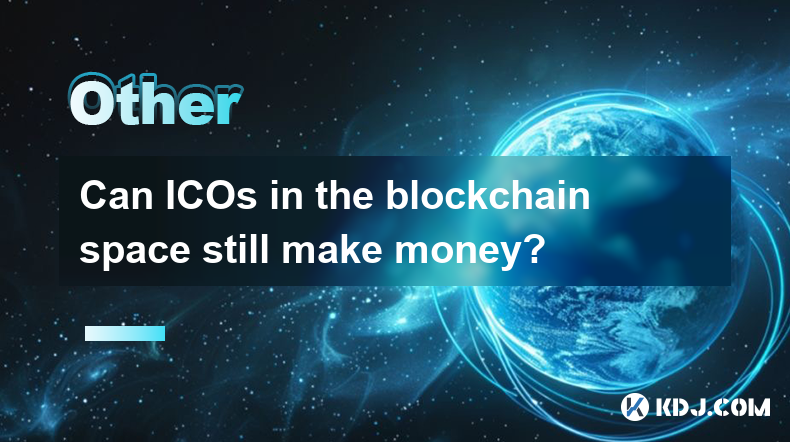
Can ICOs in the blockchain space still make money?
Apr 17,2025 at 08:29pm
The landscape of Initial Coin Offerings (ICOs) in the blockchain space has evolved significantly since their peak in 2017 and 2018. Despite the increased regulatory scrutiny and the rise of alternative fundraising methods like Security Token Offerings (STOs) and Initial Exchange Offerings (IEOs), ICOs can still be a viable way to raise funds and generat...
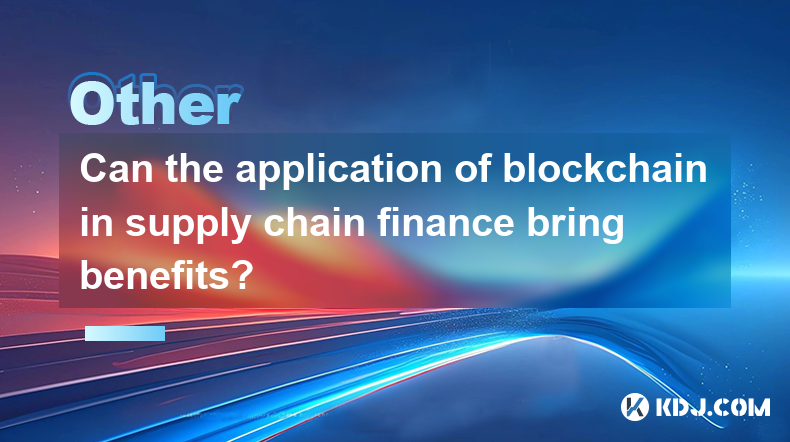
Can the application of blockchain in supply chain finance bring benefits?
Apr 15,2025 at 04:00pm
Can the application of blockchain in supply chain finance bring benefits? The integration of blockchain technology into supply chain finance has garnered significant attention in the cryptocurrency and financial sectors. This article explores how blockchain can potentially revolutionize supply chain finance, detailing its benefits and providing a compre...

Does the ranking of Chinese blockchain apps include cross-chain applications?
Apr 14,2025 at 04:00pm
The ranking of Chinese blockchain apps is a comprehensive evaluation that takes into account various aspects such as user base, transaction volume, and technological innovation. A pertinent question arises regarding whether these rankings include cross-chain applications. Cross-chain applications, which allow different blockchain networks to interact an...
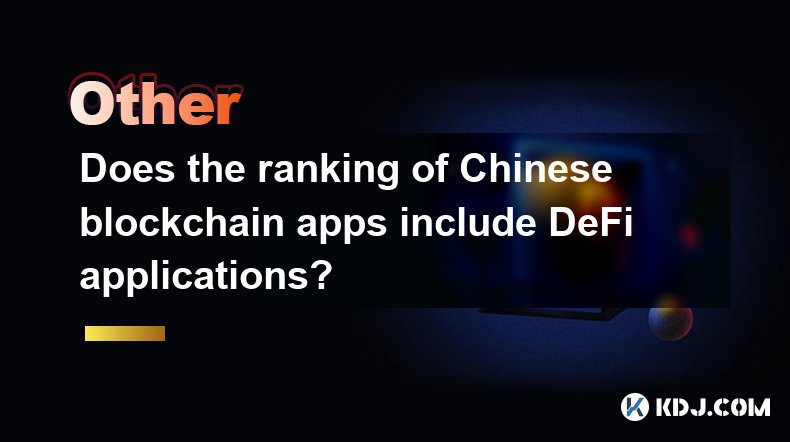
Does the ranking of Chinese blockchain apps include DeFi applications?
Apr 15,2025 at 06:57am
The ranking of Chinese blockchain apps is a comprehensive list that showcases the most popular and influential applications within the cryptocurrency ecosystem. One question that often arises is whether these rankings include DeFi applications. To answer this, we need to delve into the specifics of how these rankings are compiled and what types of appli...
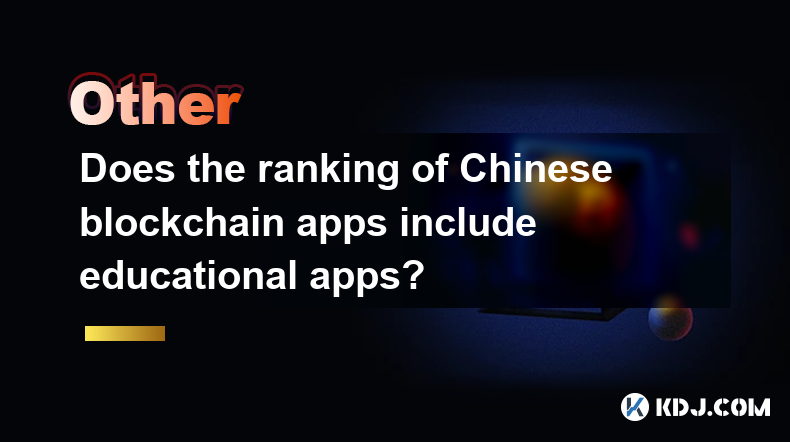
Does the ranking of Chinese blockchain apps include educational apps?
Apr 16,2025 at 03:35am
The ranking of Chinese blockchain apps often includes a variety of categories, from finance and gaming to social networking and beyond. One question that frequently arises is whether these rankings include educational apps. To address this, we need to delve into the specifics of how blockchain apps are categorized and ranked in China, and whether educat...
Does the ranking of Chinese blockchain apps include enterprise-level applications?
Apr 15,2025 at 06:42am
The ranking of Chinese blockchain apps often includes a variety of applications, ranging from consumer-focused to enterprise-level solutions. Understanding the scope and criteria for these rankings is essential to determine if enterprise-level applications are included. This article delves into the specifics of how Chinese blockchain app rankings are co...

Can ICOs in the blockchain space still make money?
Apr 17,2025 at 08:29pm
The landscape of Initial Coin Offerings (ICOs) in the blockchain space has evolved significantly since their peak in 2017 and 2018. Despite the increased regulatory scrutiny and the rise of alternative fundraising methods like Security Token Offerings (STOs) and Initial Exchange Offerings (IEOs), ICOs can still be a viable way to raise funds and generat...

Can the application of blockchain in supply chain finance bring benefits?
Apr 15,2025 at 04:00pm
Can the application of blockchain in supply chain finance bring benefits? The integration of blockchain technology into supply chain finance has garnered significant attention in the cryptocurrency and financial sectors. This article explores how blockchain can potentially revolutionize supply chain finance, detailing its benefits and providing a compre...

Does the ranking of Chinese blockchain apps include cross-chain applications?
Apr 14,2025 at 04:00pm
The ranking of Chinese blockchain apps is a comprehensive evaluation that takes into account various aspects such as user base, transaction volume, and technological innovation. A pertinent question arises regarding whether these rankings include cross-chain applications. Cross-chain applications, which allow different blockchain networks to interact an...

Does the ranking of Chinese blockchain apps include DeFi applications?
Apr 15,2025 at 06:57am
The ranking of Chinese blockchain apps is a comprehensive list that showcases the most popular and influential applications within the cryptocurrency ecosystem. One question that often arises is whether these rankings include DeFi applications. To answer this, we need to delve into the specifics of how these rankings are compiled and what types of appli...

Does the ranking of Chinese blockchain apps include educational apps?
Apr 16,2025 at 03:35am
The ranking of Chinese blockchain apps often includes a variety of categories, from finance and gaming to social networking and beyond. One question that frequently arises is whether these rankings include educational apps. To address this, we need to delve into the specifics of how blockchain apps are categorized and ranked in China, and whether educat...

Does the ranking of Chinese blockchain apps include enterprise-level applications?
Apr 15,2025 at 06:42am
The ranking of Chinese blockchain apps often includes a variety of applications, ranging from consumer-focused to enterprise-level solutions. Understanding the scope and criteria for these rankings is essential to determine if enterprise-level applications are included. This article delves into the specifics of how Chinese blockchain app rankings are co...
See all articles




















































































